Fashion for Cancer x Shentonista – Fearless
Featuring
Corinne
Financial Services Director
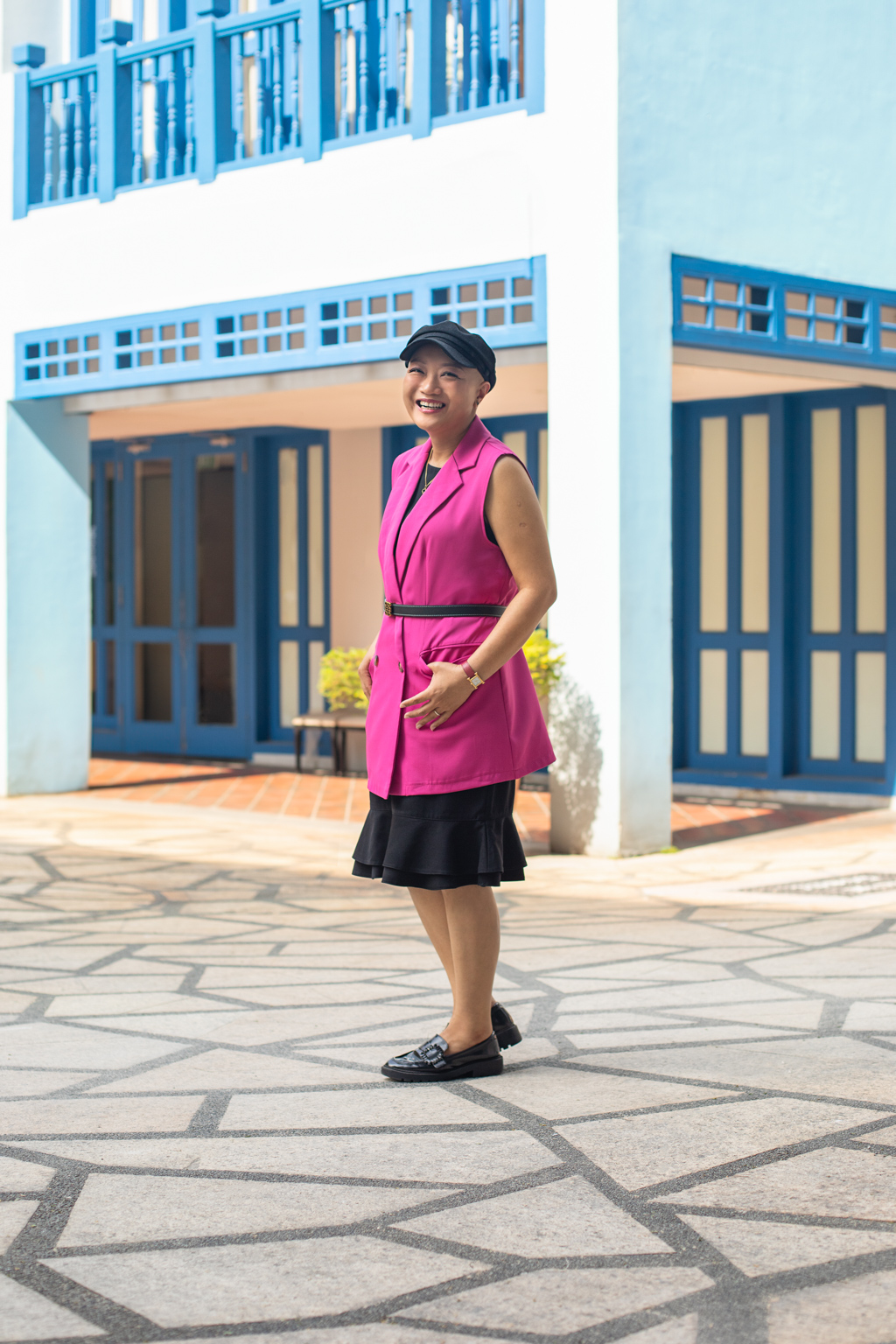
When you were diagnosed with breast cancer, what was the first thought that ran through your mind?
I didn’t ask “Why me?” because I’m in the insurance industry, so I know that it’s statistically common, and I’ve also previously encountered clients who have been diagnosed with cancer and undergone treatment for it. It’s just that unfortunately, it happened to me. So my first thought was to focus on following the doctor’s advice and going for treatment.
You’ve experienced two relapses since your first diagnosis in 2012. How has your mindset changed since then, and through your relapses?
If you ask me, the first relapse was the most impactful. Why I say that is because after I was cleared of my first diagnosis and in remission, I changed my lifestyle completely. I did whatever I could to stay healthy—I did a lot of research on carcinogens and avoided processed food and dairy. I actually like to eat sausages and hot dogs, but I really cut it out of my diet for four years. However, my cancer still came back.
When it came back, it was hard for me to accept it because I really took care of myself. But it still happened. So I cried lah. I cried for one day? Two days? But after that I picked myself up and said “I still gotta live, right?” So I just continued taking care of myself. After that, the second relapse was pretty okay. I’ve been seeing the same oncologist for a while, and she didn’t use the word “relapse”, but I knew that’s what it was. After a routine scan, she said “Oh, we saw something light up at this place”, you know, which is basically a relapse.
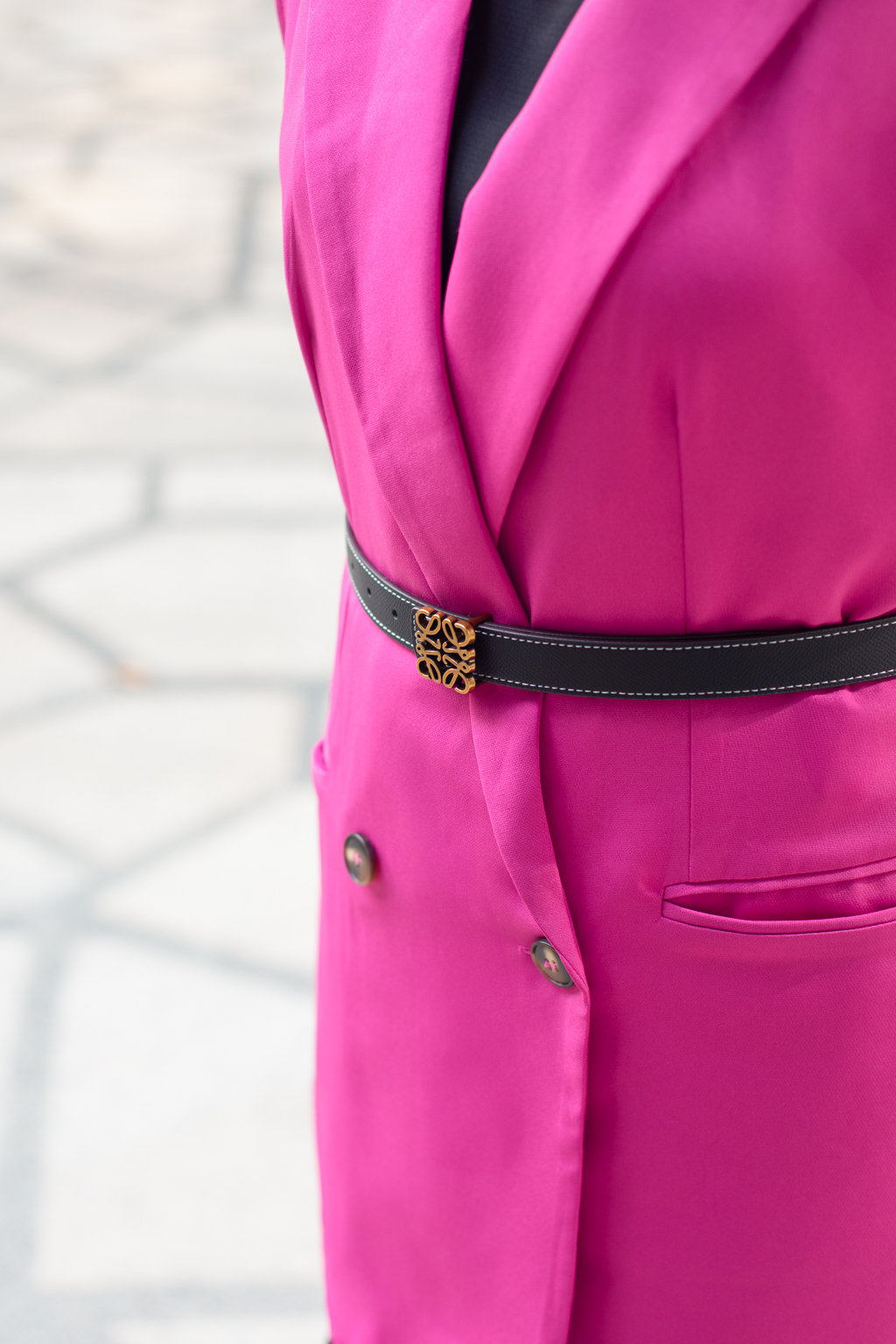
What were some of the hardest moments or parts of your treatment?
I guess it’s having to go through a lot of different types of treatments, because once one type of medication or chemo doesn’t work, the doctor will introduce another. So sometimes I’d think about what would happen if if there are no more drugs or treatments left for me to try. But my oncologist is and has always been very encouraging. She would always say that “For your cancer, there are always new drugs available. We are always developing new drugs for it” and things like that.
Apart from that, physically there is tiredness that comes with chemo. And different types of drugs have different side effects, like how some drugs give you ulcers, and others give you constipation. The constipation is real, man (laughs). It’s so torturous! When you experience it yourself right, oh, my God! So I learned to take care of myself by Googling solutions, drinking prune juice, and eating this and that. But okay, Google is something that is both good and bad lah (laughs). You can Google to find solutions, but if you Google too much, it doesn’t help you physically or emotionally because you start finding out about all of these other side effects.
Over the years, I’ve stopped Googling things so much already. I’ve learned to let go of having to find out everything, not because I don’t want that knowledge, but because I have faith in God and my doctors, and I trust the experts and my body.
It’s true, Google can really be a black hole of overwhelming info! Going back to your relapses, what are some things or habits you’ve built that have helped you overcome the tough times?
I’m very open about my condition—I don’t hide it. So if you ask me, this is what has helped me through it ah, because I turn my frustration into encouragement for other patients. But each of us are different. I know there are people who just don’t want people to know about their diagnosis. But for me, it helps me come to terms with my condition. And I’ve actually seen people who recover very well when they’re more open about their condition, maybe because they end up finding a good community of supportive people. Of course, this can be overwhelming for introverts, but I think it’s important to find at least one person who you can talk to and share your struggles with.
When I was first diagnosed, my colleague introduced me to a lady who also has breast cancer. She was diagnosed earlier, and she also relapsed, but when she was talking to me back when I was first diagnosed, she didn’t dare to tell me about her relapse until I got it myself. So some people only open up when others open up as well, but whether you’re opening up first or sharing your experiences after, it’s still a form of support, which is always good to have.
Also in that time, when I was discharged from the hospital after my initial diagnosis and treatment, one of my friends posted on Facebook saying “Oh, Corinne has been discharged!”, then a lot of people came and visited me, which was so paiseh (laughs)! Anyway, of these people, an old friend who I wasn’t very close to also came by and shared that she had cancer too, but no one else knew about it. Since then, we’ve been encouraging each other in our journeys over the years, through our relapses. In fact, I’d like to dedicate my story to her, as she undergoes treatment for her relapse right now—I hope to see her get through this.
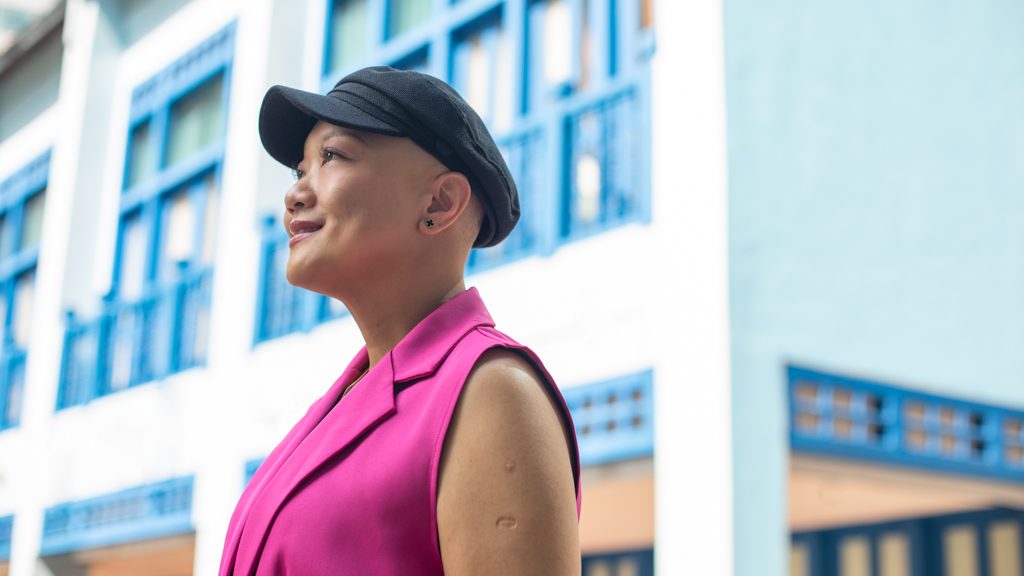
That’s really sweet! On the topic of support, your husband has walked this recovery journey with you for a while now. How has your relationship grown through this period?
(Laughs) He actually just shaved his head not too long ago, before I did! He didn’t shave the previous time I relapsed, but it’s okay, because it takes courage to shave off all your hair. I actually wanted to go for hair for hope, but was hesitating because back then, my chemo drugs weren’t causing hair loss. My hair only started dropping when I switched to a new treatment, and I was telling my husband about it and complaining every day (laughs). I would say “My hair is dropping already! Aiya, this chemo is costing my hair!” then one day he came into the room with a shaved head, which surprised me. My husband isn’t good with words, but he really cares for me and takes care of me in this way, through actions.
Some of my friends and people will ask me “Eh, why don’t you wear a wig?” and I actually used to, but these days, I just don’t feel like it. It’s very hot to wear the wig, you know? And having to take it on and off is so mafan (troublesome)!
It’s so sweet that your husband shows his love through little actions like these! So you have a strong support system in the form of your husband at home, but what about at work?
Fortunately, because of the industry I’m in, we’ve seen clients go through the same thing, so we know what it’s like and the toll it takes on the body. So even after a long break from work, I had colleagues who were able to help me with my responsibilities and help me transition back to work. But this time round, when I relapsed again, I decided to still work, but at a slower pace, maybe one to two times per week. I just want to make myself useful, you know?
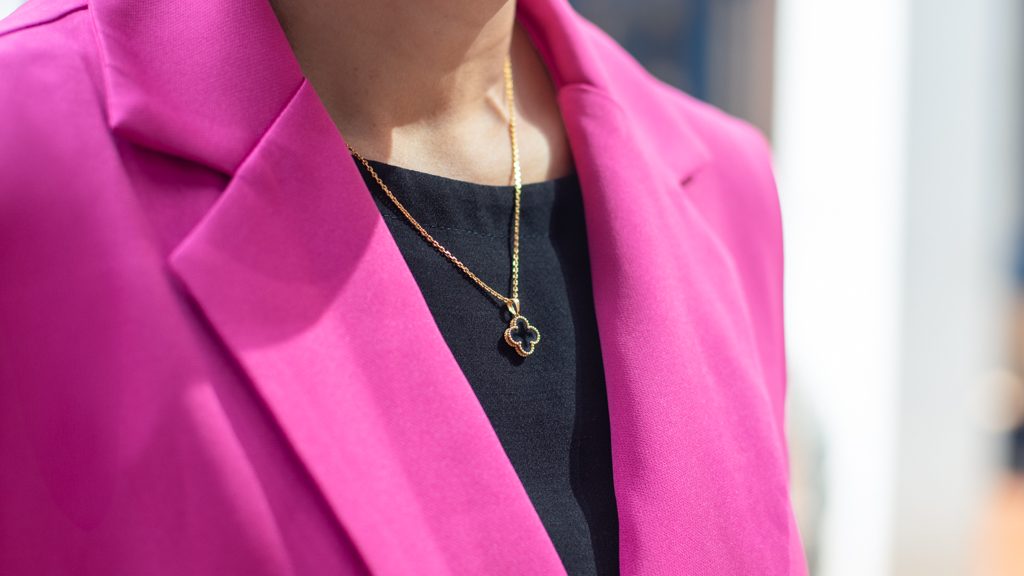
It’s so admirable how despite it all, your condition doesn’t define how you live your life.
Ya, because compared to so many other people with more serious problems or life circumstances, I feel like what I’m going through is quite minor already. Yes, it’s scary to hear the word “cancer”, but it’s not a death sentence as long as you seek the right treatment. Again, it’s different for everyone, but I feel like hearing about the situations of other people close to me has helped me put my condition into perspective.
You know the news report of the customs officer who was left in a vegetative state after an accident at Tuas checkpoint? He’s actually my cousin’s boyfriend. They’re so young, and they were waiting to get the keys to their BTO when this happened. His father actually quit his job leh to take care of him in the nursing home, and he always says that “这是命 (this is life) lah”, but so heart pain, right? So this really struck me, and made me realise that what I’m going through is really nothing lah, in comparison.
Our deepest condolences to your cousin and her boyfriend’s family—life truly is so short and unpredictable. These days, what do you do to feel good and care for your mind and body?
I don’t turn on my laptop (laughs). I will sleep and go to a garden to walk and admire nature.
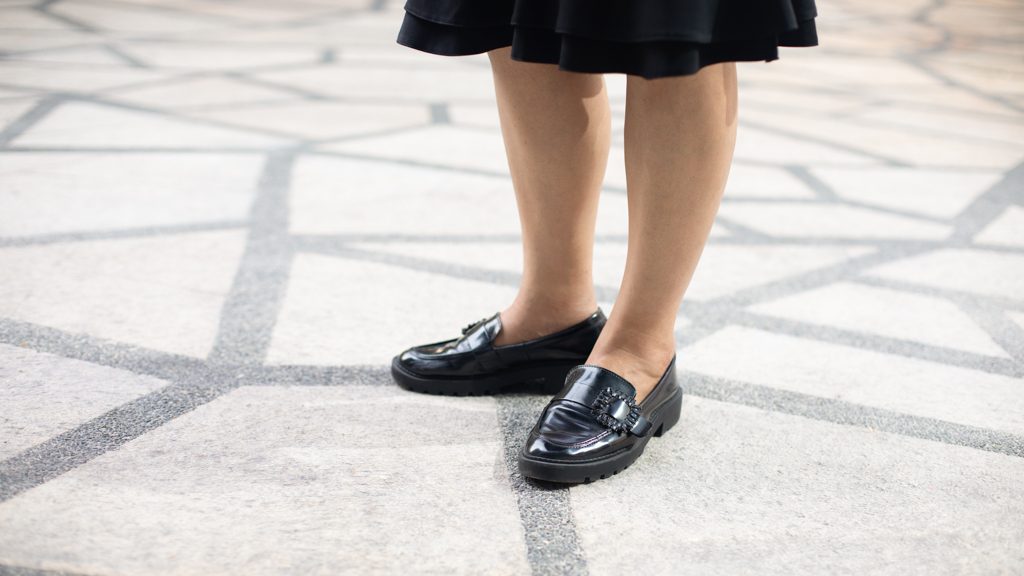
Finally, what is one thing you’d want others to take away from your story?
Be fearless and treat your loved ones well, because you never know what will happen in life. It’s a blessing to wake up every day, so cherish each day and be fearless, because your own determination will overcome anything lah, whether it’s cancer treatment or any other struggle.
Sometimes, it’s a mind game, you know? In my earlier days, even though I looked very positive, I also had times where I would feel very doubtful. In fact, I still have such moments now, but once you overcome these negative thoughts with positive ones, then that’s it, you can move on.
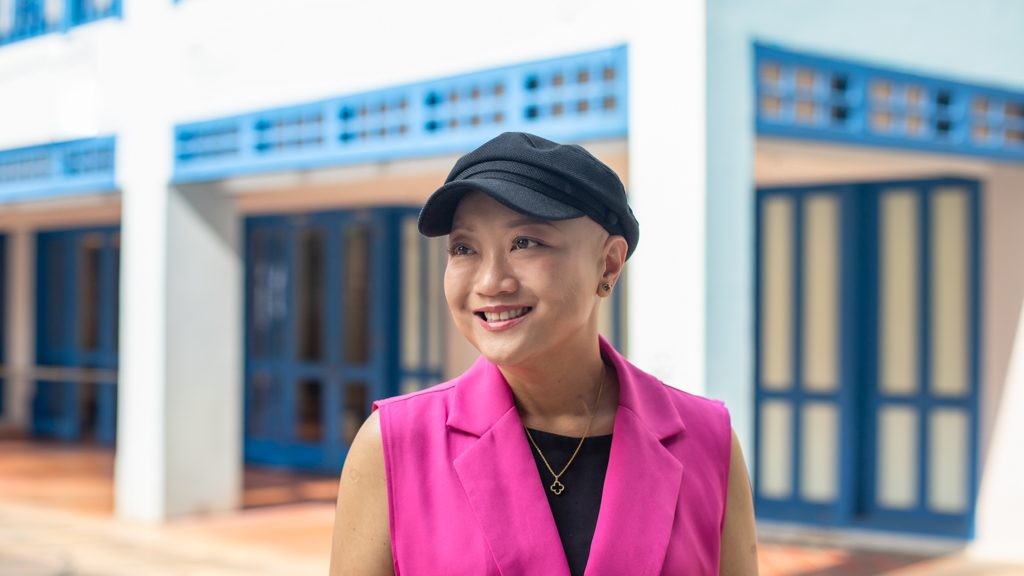
This is a feature for Fashion for Cancer 2025, spotlighting 5 cancer survivors and warriors. Founded by Ong Bee Yan, Fashion for Cancer is a charity fashion show aimed at raising funds for cancer research and financial aid. Support the cause on 13 September 2025 at The Westin Singapore—get your tickets here.
Like this? Share it.
What others are saying
There are no comments yet.
Leave a Reply